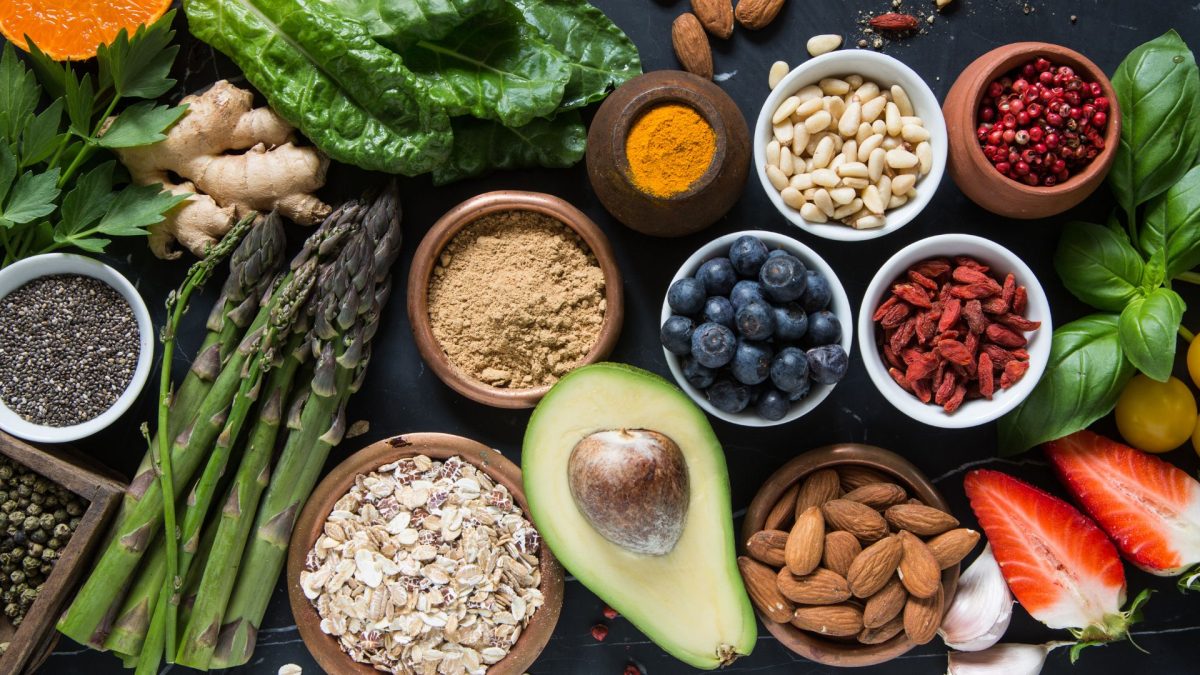Fact Checked
Intus Healthcare’s writers, customer service team, and sleep experts review and ensure this information is accurate.
Last updated on March 7th, 2024 at 10:30 am
Sleep is essential for maintaining good physical and mental health. The recommended number of hours of sleep required for most adults is between 7 and 9 hours a night. This helps your body and brain to recover and recharge for the next day. There are numerous factors which can affect how well you fall asleep as well as the quality of sleep you gain. These can include anxiety, food, alcohol, blue light and more.
Limiting the amount of sleep you get can also contribute to developing sleep disorders such as Obstructive Sleep Apnoea (OSA). Those who suffer from OSA should consider which foods are also consumed before sleeping, as this can impact the quality of your sleep. Choosing the right snacks to promote drowsiness can complement their treatment (such as CPAP therapy).
While you don’t want to go to bed on an empty stomach, you also shouldn’t overeat – even if you are consuming foods that help you sleep. The larger the meal or snack, the harder the body needs to work to digest it – and the less rest you will get.
Table of Contents
Which foods help sleep?
So what foods help you fall asleep? Well, certain foods contain elements which help you to relax, such as melatonin. The melatonin produces the feeling of drowsiness and helps you to fall asleep quicker and remain asleep too.

Calcium-rich foods for sleep
Some of the best foods which help with promoting sleep contain essential vitamins and minerals such as magnesium, tryptophan and calcium.
A lack of calcium can result in frequent disturbances during the night. Consuming foods which contain calcium and tryptophan will significantly aid sleep and provide numerous other health benefits, especially if you suffer from a sleep disorder.
Examples of these are:
- Broccoli
- Seeds
- Soybeans and lentils
- Plant-based milk such as almond, pea and flaxseed contain more calcium than cows milk
- Sardines
- Cottage cheese
- Low-fat milk
- Low-fat yoghurt
Tryptophan foods for sleep
Tryptophan can be found in several foods and help with sleep, such as complex carbohydrates, eggs and fish. Tryptophan helps promote drowsiness by boosting serotonin levels, which aids your sleep. Serotonin is excellent for your mood, making you feel happier and reducing the risk of depression and sleep disorders. It can also increase the hormone melatonin, which positively impacts your sleep-wake cycle.
Nuts are a good, healthy snack option and can also help you fall asleep. If you are feeling hungry late at night, almonds and walnuts are great snack options since the calcium they contain converts the body’s tryptophan into melatonin, helping to signal to the body it is time to fall asleep.
Examples of foods high in tryptophan include:
- Vegetables
- Grains
- Honey
- Cherries
- Eggs
- Seafood
- Chicken
If you consume these with whole-grain bread, this can help retain the grain’s germ, which has vitamins to aid the absorption of tryptophan and magnesium, known to be a muscle relaxer.
Melatonin foods for sleep
We naturally create the sleep hormone melatonin, which aids us in gaining quality sleep. Many people take melatonin supplements to increase their sleep; however, there are melatonin-rich foods that can promote sleep.
Melatonin-rich foods:
- Milk
- Pistachios
- Fish
- Rice
- Oats
- Mushrooms
- Corn
- Bananas
Can a banana help you sleep?
Did you know bananas contain different nutrients to enhance your sleep? Bananas contain magnesium, tryptophan, potassium and melatonin! Which means they can be extremely beneficial to your sleep.

What foods will keep me awake at night?
While it is widely acknowledged that drinking caffeine and alcohol before bed should be avoided, some foods may help you fall asleep.
It is also recommended to avoid drinking too much before you sleep to prevent waking up and needing to use the toilet. However, opting for caffeine-free tea is a good option if you need a drink before going to bed. Examples of caffeine-free teas include Chamomile, ginger, or peppermint tea.
These are the foods to avoid if you want to improve your sleep.

Caffeinated foods and drinks
Many of our favourite foods include caffeine, which keeps you awake at night and hinders your body from relaxing and shutting down. Examples of foods containing caffeine include:
- Chocolate
- Coffee & Tea
- Energy and fizzy drinks
- Some supplements
Many caffeinated foods and drinks are also high in sugar. This will increase your insulin levels and the stress hormone cortisol, making it difficult to sleep.
Spicy foods
Spicy food can cause indigestion, heartburn, and acid reflux, all of which can keep you up at night. Many spicy foods contain high levels of capsaicin, a chemical that elevates your body temperature. Examples of spicy foods which may prevent you from sleeping include:
- Curries
- Hot sauce
- Mustard
High Glycaemic Index foods
These foods rapidly increase blood sugar. These types of foods are quickly digested and absorbed, causing a rapid rise in blood sugar, making it harder to fall asleep. Monitoring your blood pressure is a good way to see if your sleep could be disturbed as a result of these foods, especially if you experience hypertension. Examples of these foods include:
- White rice
- White bread
- Fries
- Potatoes
- Noodles
Fatty foods
These foods can affect the quality of your sleep, overwhelming your digestive system before bed. A late-night slice of pizza can be tempting but is better left alone if you want a peaceful night’s sleep. Many of these kinds of foods also contain high salt, which dehydrates your body; they should be avoided 2-3 hours before you sleep. Fatty foods which can impact your sleep include:
- Fried chicken
- Pizza
- Fatty meals
Other changes you can make
The relationship between your sleep and food plays an important part in not only your overall health but especially if you have a sleep disorder like Obstructive Sleep Apnoea. Trying some of these foods may help you to feel sleepy as they are rich in melatonin, helping you to get a good night’s sleep.
Whilst there are foods that keep you awake at night, it is important to ensure other factors of your lifestyle are also addressed to improve the quality and amount of sleep you get each night. Reducing time spent on screens, along with considering changes, such as quitting smoking, weight loss and having a regular sleeping routine, will help prevent you from not only waking up tired but also from worsening your Sleep Apnoea.
Getting tested for Obstructive Sleep Apnoea
If you have already considered these foods and made adjustments to your lifestyle but still struggle to sleep, then a sleep test can help determine if Sleep Apnoea is present and the severity of it. IntusHealthcare provides confidential, efficient and reliable testing helping over one hundred thousand people with Obstructive Sleep Apnoea. 80% of the UK population who suffer from Obstructive Sleep Apnoea are undiagnosed, so getting a sleep test is the best way forward to resolve your sleep problems.
You should always consult a healthcare professional, such as a nutritionist, before making any drastic changes to the types of foods you eat. If you need further advice on Obstructive Sleep Apnoea, contact us if you need any help or advice.
-
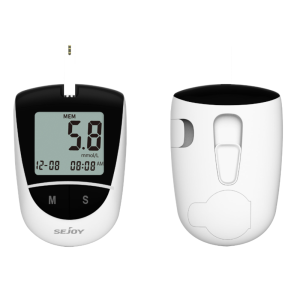 Advanced Blood Glucose Monitor£18.99
Advanced Blood Glucose Monitor£18.99 -
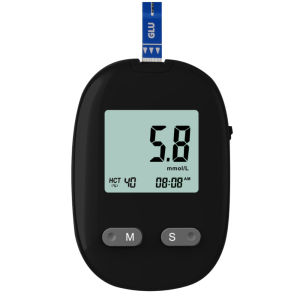 Blood Glucose Monitor£21.99
Blood Glucose Monitor£21.99 -
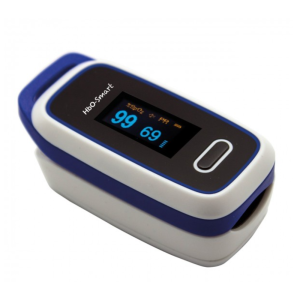 HbO-Smart Fingertip Pulse Oximeter£29.99
HbO-Smart Fingertip Pulse Oximeter£29.99 -
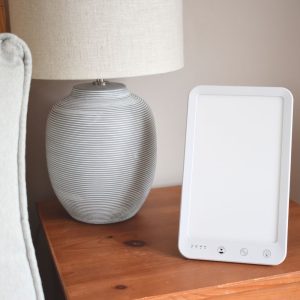 SAD Lamp – LED Daylight Lamp£49.99
SAD Lamp – LED Daylight Lamp£49.99

